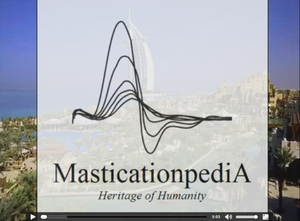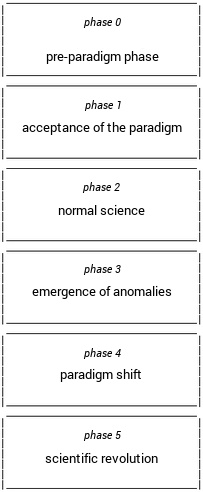We would like our reader to have an immediate perception of the topics that will be debated in Masticationpedia; we will review some of the most current issues concerning the epistemological evolution of science in general, and medical as well as dental medicine in particular.
You can also watch a video of ours on Youtube, for your convenience.
Introduction
In this phase we will consider the two fundamental aspects of Progress of Science, according to the Kuhn Paradigms, and Epistemology which questions the concepts of "Statistical Inference" and "Interdisciplinarity".
These two themes, which apparently seem to be in conflict with each other, as the first one needs disciplinarity to highlight the "Anomalies in the Paradigm" and the second needs "Interdisciplinarity", they will integrate through a resolving element that consists of "metacognitive scaffolds", i.e. cognitive bridges between specialist disciplines. In this context, therefore, the reader will be better able to appreciate the stochastic approach towards one of the most controversial topics in masticatory rehabilitations, such as, "Malocclusion", from which come most of the masticatory rehabilitation procedures such as orthodontics, prosthesis and orthognathic surgery.
So, in addition to anticipating the scientific and philosophical aspect of Masticationpedia, we will finally focus on topics such as "Complex Systems", the "Emergent Behaviour" of Complex Systems and "System’s Coherence": necessary steps to introduce scientific clinical topics which bring with them doubts, questions and at the same time paradigmatic innovations tending to change the status quo of the deterministic and reductionist clinical thinking routine, before a stochastic and interdisciplinary language logic.
Article by Gianni Frisardi
|
Ab ovo[1]
Before getting to the heart of the Masticationpedia treatment, a premise is appropriate, that mainly concerns two aspects of the social, scientific and clinical reality of the current and the immediately preceding era.
In the last century, we witnessed exponential growth in technological and methodological "Innovations" specifically in dentistry[2]; these innovations have in some way influenced decision-making strategies, opinions, schools of thought and axioms in order to improve quality of life, as stated in the "Exposure Science in the 21st Century"[3]. However, this exponential growth brings with it, implicitly, conceptual gray areas (in practical terms "side effects") which are sometimes underestimated, but which may call into question some Scientific Certainties or make them less absolute and more probabilistic.[4]
The two sensitive aspects of the current social, scientific and clinical reality (which seem to conflict with each other, but as we will see at the end of this reading will be complementary) are the "Progress of Science" according to Kuhn and the "Epistemology".
Bibliography
- ↑ Latin for "since the very beginning"
- ↑ Heft MW, Fox CH, Duncan RP, «Assessing the Translation of Research and Innovation into Dental Practice», in JDR Clin Trans Res, 2019.
DOI:10.1177/2380084419879391 - ↑ «Exposure Science in the 21st Century. A Vision and a Strategy», Committee on Human and Environmental Exposure Science in the 21st Century; Board on Environmental Studies and Toxicology; Division on Earth and Life Studies; National Research Council..
ISBN: 0-309-26468-5 - ↑ Liu L, Li Y, «The unexpected side effects and safety of therapeutic monoclonal antibodies», in Drugs Today, 2014, Barcellona.
DOI:10.1358/dot.2014.50.1.2076506

